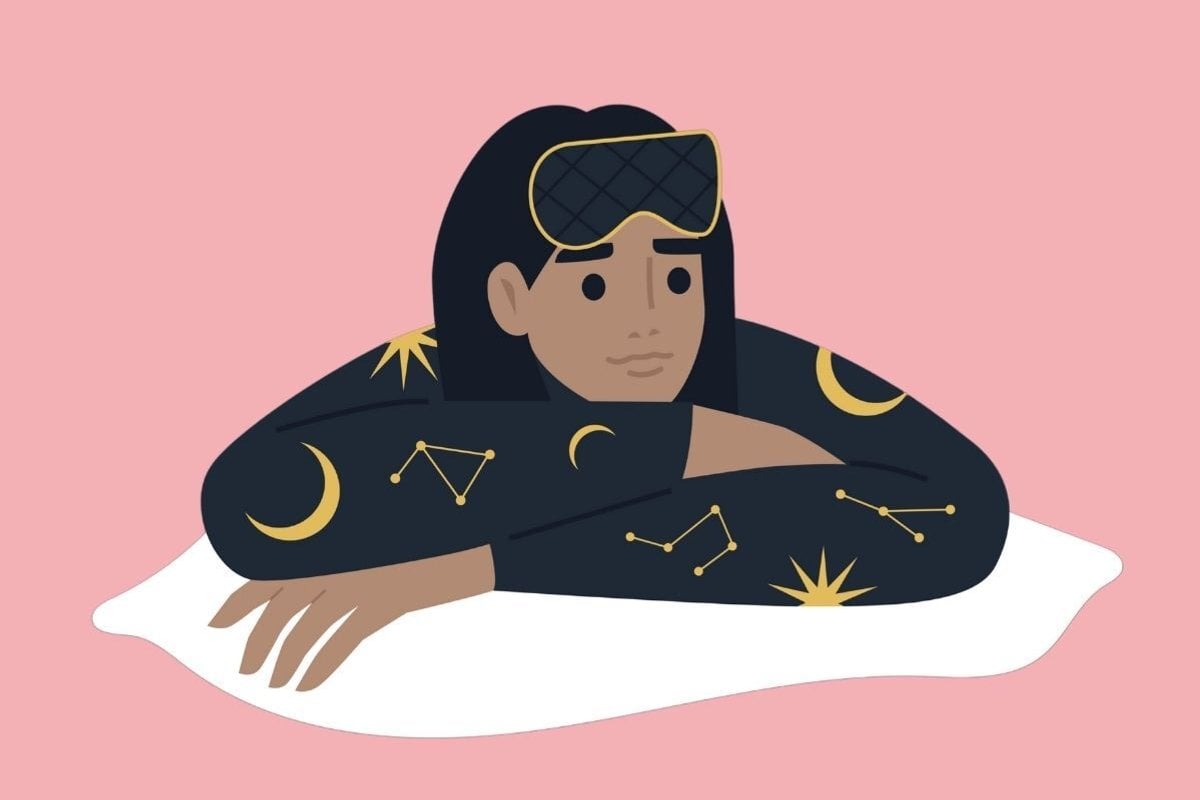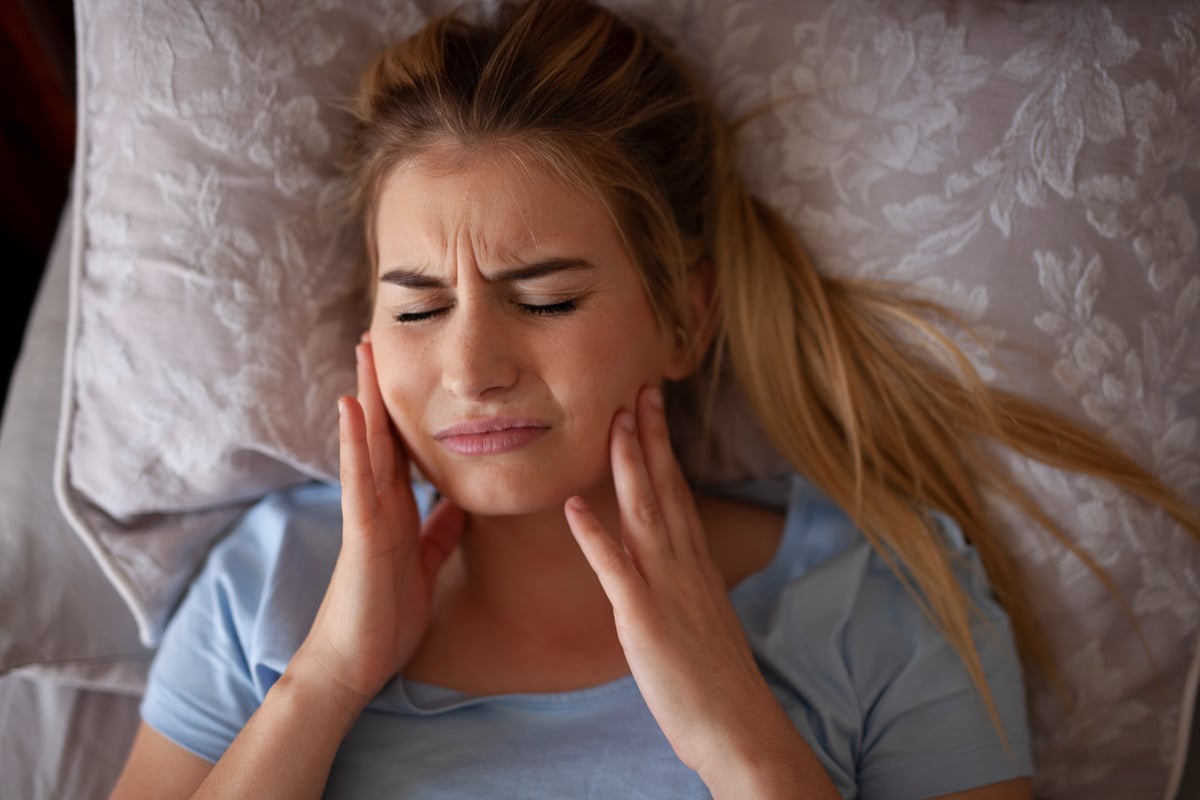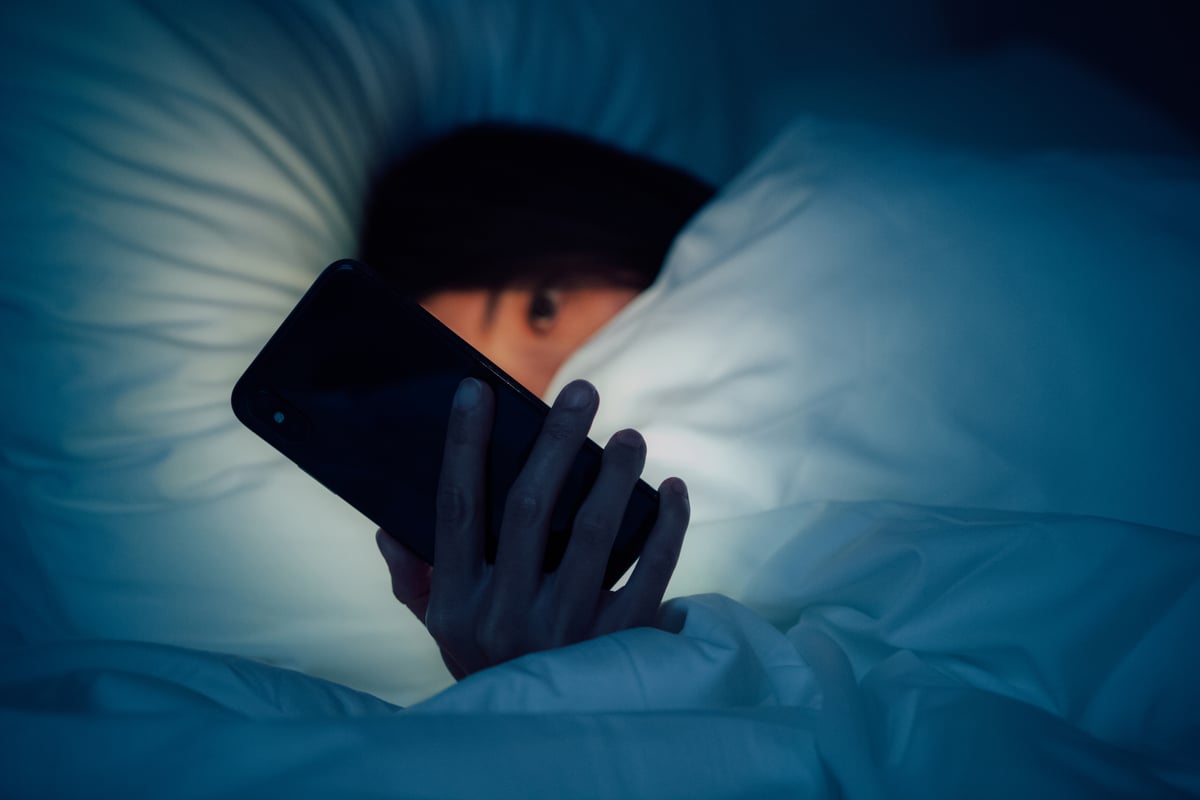
Look, we all know that scrolling through Instagram for 45 minutes and dousing our sleepy eyes in some AGGRESSIVE BLUE LIGHT isn't exactly ideal for a good night's sleep. Nor is drinking Coke with dinner. Or falling asleep with all the lights on, watching Mad Men for the seventh time.
But while these little sleeping habits might seem like NBD (omg get off our backs!) - they could actually be doing some serious long-term harm to your overall health.
Watch: Here's how long your power nap should *really* last. Post continues below.
While short-term effects of disrupted sleep include things like mood swings and lack of focus, these bad habits can have a run-on effect for the wellbeing of future you. And the outlook ain't great, friends.
We're talking things like high blood pressure, diabetes, memory loss and heart failure - just to name a few.
So, y'know - it could be time to start figuring out some alternatives.
Here, we've rounded up six of the most common bad sleeping habits and what you can do about them.
1. Teeth grinding.
Do you grind your teeth at night? You might, you know. Most people don't even realise they're doing it. But if you're waking up in the morning with a sore jaw or headache, or wondering why your teeth are looking kinda small and jagged as of late, then please take a seat.





Top Comments